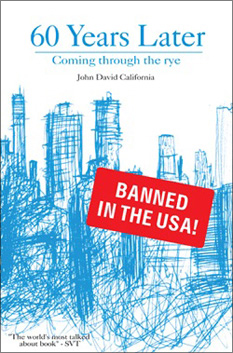
This has been a heady National Library Week for many librarians I know and me in particular. There’s been a lot of online agita and, unlike the way these things usually go, some things wound up changing for the better. Here’s a list. Apologies if I link too much to facebooky stuff.
- Someone mentioned that they found Demco’s “Spanish” spine label a bit troublesome since it had a sombrero and a set of maracas (Mexican, not Spanish, and still stereotypical at that) and misspelled español (without the tilde). A few people complained to Demco. Demco listened, agreed, removed the items from their online store. Not all of their multicultural labels are perfect, but it was nice to be heard.
- ALA’s Banned Books Week poster which was put in the ALA Store this week got a lot of pushback. Does the woman look like she is wearing a niqab? What’s the poster trying to communicate? Andromeda spells out well what some of the issues with the poster are. People wrote to ALA. ALA listened. Took a while to respond. Came back with a few posts from the ALA Office of Intellectual Freedom
- Statement on the 2015 Banned Books Week Poster
- How Do We Design a Banned Books Campaign
- Response Concerning the 2015 Banned Books Week
I particularly found some of the crosstalk interesting about whether objecting to a marketing poster was in the same family as objecting to something being in the library collection. I know we can be a mouthy contentious bunch, but given that, some of this discussion seemed to take place on new ground and it was curious to me how much my years in the MetaFilter trenches has helped me manage these sorts of discussions.
- Daredevil is a great show on Netflix about a blind superhero which did not have any descriptive audio which many found ironic. People complained. The Accessible Netflix Project started a petition. Netflix fixed it.
- After my last post about SpaceX, I decided to expand it into an article for Medium which I did with some nice photos and a lot of linking. A few days later, Flickr actually added an option for users to have public domain and CC0 licenses on their photos. This is, to me, a HUGELY great outcome. I wrote another short article about this.
- On a more personal note, Jason Goldman wrote a post on Medium to talk about how he was going to become the new White House Chief Digital Officer. I left a comment on that article talking about how part of getting people involved in civic engagement is helping them to trust the online world (i.e. doing the opposite of everything Healthcare.gov has done). This comment got a nod in Goldman’s next article now that he’s taken office. I am very very pleased about this.
Bonus link the #journalofneutrallibrarianship hashtag is a pretty good time if you like Twitter. And I wrote a nerdy article about research and Wikipedia that I think you might enjoy if you haven’t seen me blabbing about it all over the place for the past few days.




